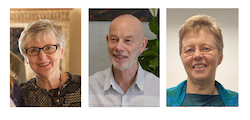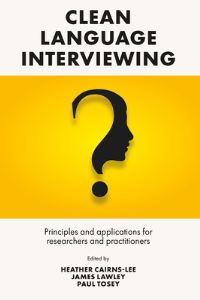In Survival of the Sickest, Sharon Moalem examines the role of disease in the survival of populations. In doing so he highlights a number of features of evolution:
The system that filters one [change] from another is natural selection. (p. xv)
Everything is influencing the evolution of everything else. (p. xv)
DNA isn’t destiny – its history. (p. xv)
Somewhere in your genetic code is the tale of every plague, every predator, every parasite, and every planetary upheaval your ancestors managed to survive. And every mutation, every change, that helped them better adapt to their circumstances is written there. (p. xvi) [1]
Evolution is amazing — but it isn’t perfect. Just about every adaptation is a compromise of sorts, an improvement in some circumstances, a liability in others. (p. 46)
One generation’s evolutionary solution is another generation’s evolutionary problem, especially when people no longer live in the environment that their bodies adapted to through evolution. (p. 58)
An adult human contains ten times as many “foreign” microbial cells as mammalian cells. And when it comes to genetic material, the microbes that make you their home collectively contain 100 times as many genes as your own genome does. (p.98)
Let’s look at what we can glean from Nature:
If we consider natural ‘selection’ as a ‘filter’, what criteria does the system use to filter changes? What does it let through and what does it prevent access to?
The first thing to notice is that Nature filters changes. Without a change there is no material to select from. Secondly, the ‘success’ of a change can only be determined retrospectively. Nature didn’t know that two copies of the gene called CCR5-∆32 would give almost complete immunity from HIV. (Otherwise why, tragically is the gene almost completely absent in Africans where AIDS is epidemic?) Only when people with those genes survive and reproduce will the prevalence of that gene spread through the population.
Nature’s forumla is as follows: change; find out if the change is beneficial; do less of it if it isn’t, do more if it is; use the results of each ‘trial’ as the basis for the next iteration; keep running the process.
The reason life has survived and thrived for billions of years is that natural selection is happening simultaneously in many places. This means failures are consigned to the fossil trash can while the successes get to write history. And I would add once the process is running, it is run on itself. That way, evolution evolves.
The $64,000 question in Nature’s process is: What constitutes ‘beneficial’? Or, as I put it before: By what criteria does the system filter changes?
In the short term it is survival and reproductive success. However, this is not as straightforward as it might seem because, according to Stephen Jay Gould, this happens at multiple levels: gene, individual, group and species.[2] In the longer term, it’s learning to improve the filtering process. And that means building in redundancy, diversity and resilience — even when Nature can’t know what it will be used for.
Now, how do many attempt to improve their lot? I’ve noticed that many people I work with:
- try to figure out ‘the best’ approach
- need to know how to implement it before you start
- want to second-guess the consequences of the change
- worry that things might get worse before they get better (which is highly likely)
- expect to see immediate results (“I tried that once and it didn’t work.”)
- spend little time deciding how you will know whether the change is working or not
- think the world should change to make your life easier (come on, admit it, we all want them to change their obnoxious behaviour.)
All of which just happens to have the tendency of delaying the change!
Compare this approach with natural selection – a bit different, eh?
Notes
1 David Grove recognised something similar:
2 The Structure of Evolutionary Theory (2002) is a 1500 page book on macroevolutionary theory by the Harvard palaeontologist Stephen Jay Gould, published only two months before his death. While it is technical and not for the fainthearted, I found the chance to peer into the mind of one the 20th Century’s great thinkers well worth the effort.
[Amended 19 Feb 2011]







